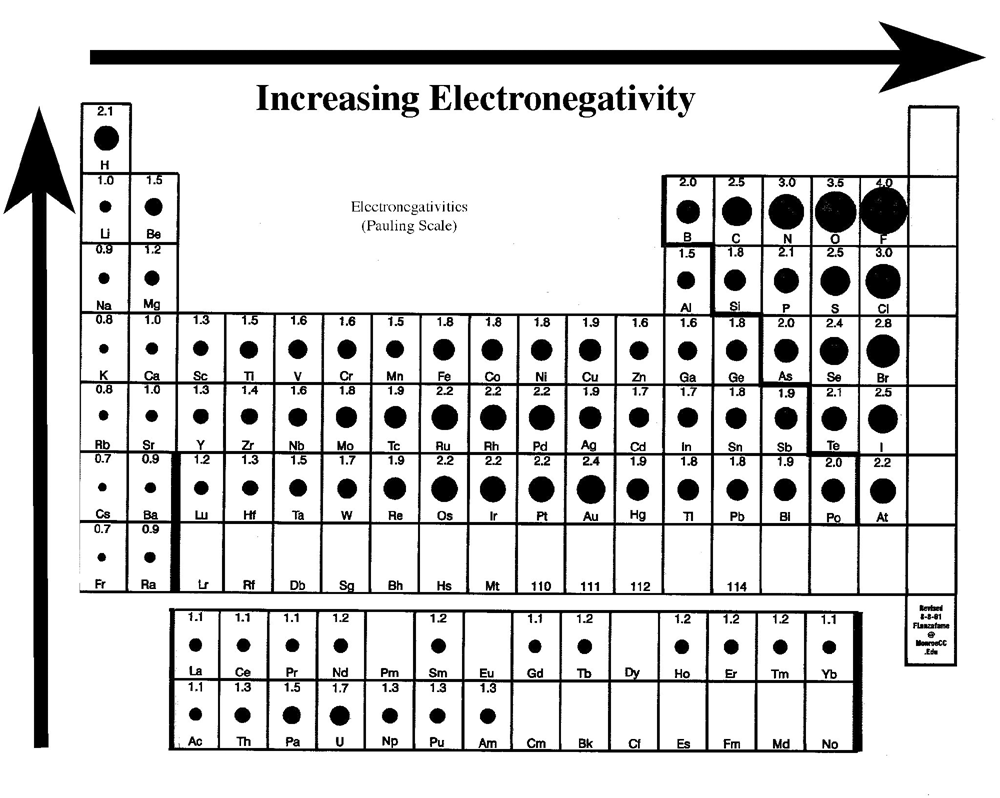How To Tell Polarity From Electronegativity
Chapter 5.6: properties of polar covalent bonds Question video: determining the polarity of the bond and overall Periodic table
Chapter 5.6: Properties of Polar Covalent Bonds - Chemistry LibreTexts
Polar vs. non-polar bonds & molecules Polar which diagram polarity bond molecule represents dipole electronegativity moment chemistry problems practice Electronegativity difference bond type
Electronegativity difference chart
Electronegativity values formula chemical polar covalent ionic nonpolar find if tell do socratic coordinateElectronegativity difference chart Electronegativity chart polarity periodic elements table type bond difference charts element determine atoms chemistry two electronegative most atom trends commonElectronegativity pauling periodic table trends values chemistry bonds scale linus electronic number printable atomic period noble gases chemical chart value.
What are the differences between ionic, polar covalent, non-polarHow can i determine bond polarity? + example Bond polarity chartCovalent bonding – introductory chemistry.

Electronegativity and bond polarity
Electronegativity difference chartChemistry covalent bonds compounds molecular electronegativity difference characteristics ch150 examples diagram Chemical bonding: periodic trendsPolar covalent bonds acids and bases.
Electronegativity difference bond type4.2b-electronegativity and polarity Electronegativity difference chartWhich diagram best represents a polar molecule.
.PNG)
Bond polarity electronegativity molecular shape covalent ionic bonding chemistry atoms types between different figure two polar nonpolar electron electrons distribution
Covalent polar ionic bonding bonds polarity electron molecules chemical electronegativity hydrogen atoms nonpolar polaire libretexts structures covalente molecular electrostatic liaisonHow do you use electronegativity values and the chemical formula of a Makethebrainhappy: polar vs. nonpolar moleculesPolarity relative electronegativity chart difference values ib chemistry bonds.
Electronegativity periodic trends bonding chemical trend chart element polarity bond electrons tendency atom electronegative table increasing electron attraction chemistry attractElectronegativity polarity chart Electronegativity difference bond typePolar periodic nonpolar table electronegativity vs molecules electron atom elements when loses becomes below higher darker source.

8.7: bond polarity and electronegativity
Electronegativity difference chartCh150: chapter 4 – covalent bonds and molecular compounds – chemistry Electronegativity and polar covalent bondingIonic covalent polar bonds.
Periodic table of elements electronegativity chart periodic tablePolar covalent bonds electronegativity periodic table nonpolar ionic bases presentation Polarity electronegativityPolarity electronegativity bond chemistry.

The periodic table and periodic trends
Electronegativity and polarity .
.


8.7: Bond Polarity and Electronegativity - Chemistry LibreTexts

Chemical Bonding: Periodic Trends

PERIODIC TABLE | ELECTRONEGATIVITY | NOBLE GASES: September 2012
4.2B-Electronegativity and Polarity - YouTube
Electronegativity and Bond Polarity - Chemistry Tutorial - YouTube
How can I determine bond polarity? + Example

Bond Polarity Chart